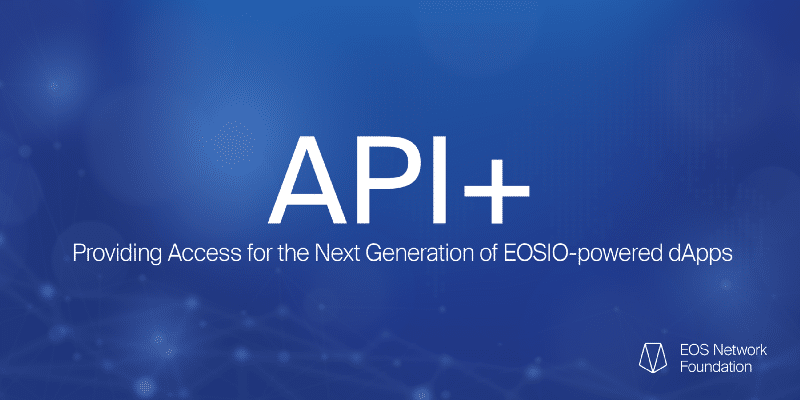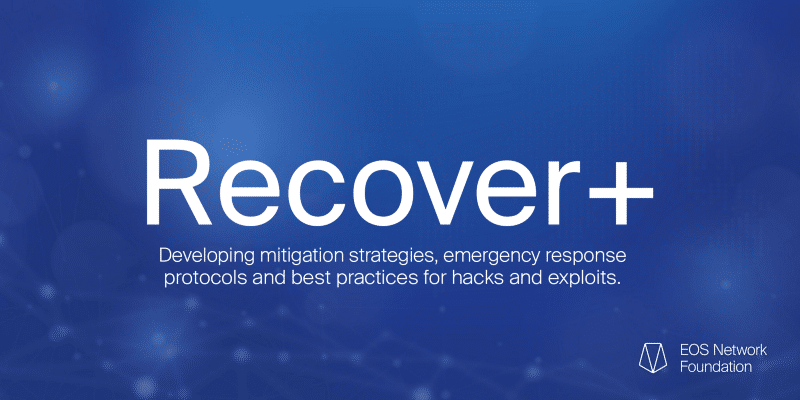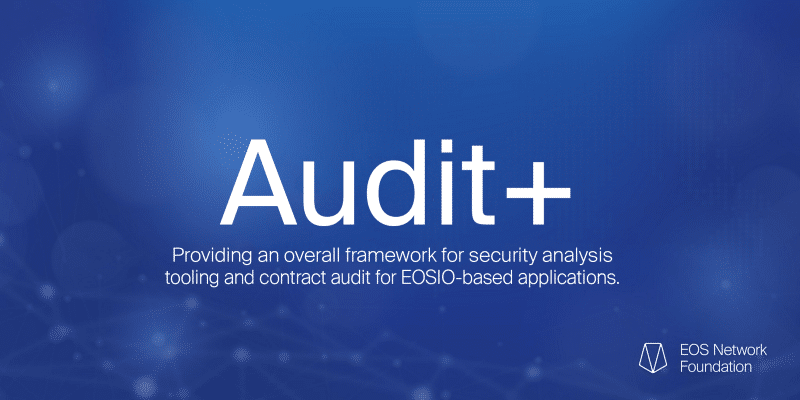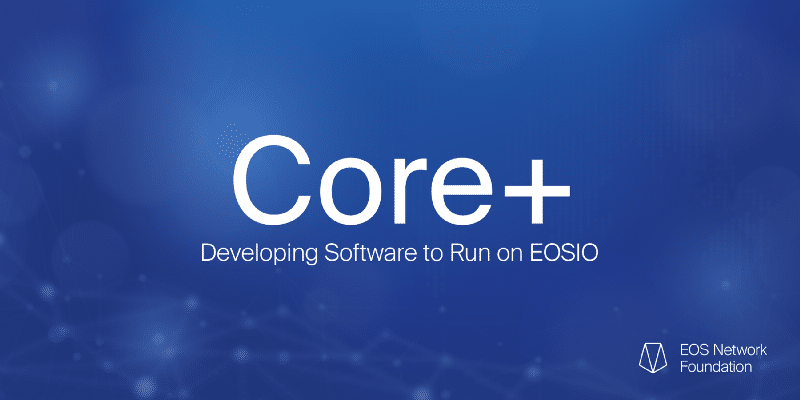EOS Network Foundation
The API + working group will ensure developers have the APIs they need to deliver world class applications.
A steadfast and resilient EOS community continues to organize and mature. In the wake of our newfound independence, and with the stewardship of the EOS Network Foundation (ENF), the network is forging its own path forward and bringing about a new era of collaboration.
At present, there are six ENF funded working groups (WGs) and four of them are progressing towards the completion of their blue papers in areas of development identified as critical for the success of EOS. Each blue paper will represent the culmination of research into, and an expression of actionable strategies for achieving success in their respective domains.
The Six ENF Sponsored WGs:
- API+: Providing access for the next generation of EOSIO-powered apps.
- Core+: Developing software that allows applications to run on EOSIO.
- Wallet+: Working with software to integrate EOSIO into external applications.
- Audit+: Providing an overall framework for security analysis tooling and contract audit for EOSIO-based applications.
- EVM+: Development for EVM compatibility and economic incentives for viability on EOS.
- Recover+: Developing mitigation strategies, emergency response protocols, and best practices for hacks and exploits.
Next Level Collaboration on EOS with Sponsored Working Groups
Each working group is being allocated $200–250k in funding with a further $100k being dedicated to the overall oversight of the working groups. These funds have been deposited into an account with an MSIG permission structure which requires them to reach consensus among themselves to decide how funds should be allocated, enabling them to work in a DAO-like structure based on accountability and consensus.
Communication between the various WGs allows them to see where problems and proposals for solutions overlap and promotes coordination, reduces duplicate efforts, brings gains in efficiency, and speeds development towards making EOS more usable for developers, exchanges, and users who are looking to tap into the power of the EOS blockchain.
Introducing API+
The digital world runs on APIs (Application Programming Interfaces). They are the connective tissue that allows applications to leverage core infrastructure as well as connect with other applications.
EOSIO APIs are specialized servers that websites, applications and wallets use to send and receive information from EOSIO-based blockchains. Different APIs perform different functions and are crucial to helping developers read and interact with the blockchain. EOS APIs have not always met the needs of developers and despite the valiant efforts of various teams, EOS APIs have been in need of a comprehensive overhaul.
The API+ working group (WG) is composed of talented, veteran EOSIO developers from these three organisations.
- Greymass: Working on multiple EOSIO chains, they facilitate the growth of distributed ledger technologies and the infrastructure powering them. Greymass are the core developers behind Anchor wallet, Greymass Fuel, Unicove, the EOSIO Signing Request (ESR) Protocol, and core libraries/SDKs. They are also working on the Wallet+ working group while their head, Aaron Cox, serves as lead project manager for WGs.
- EOS Nation: The developers behind Pomelo, .gems, EOS Name Service, EOSX Block Explorer, and EOS Detective and a top ranked block producer. EOS Nation are also the sole infrastructure providers of dfuse on EOS and also maintain its code repository for EOSIO.
- EOS Rio: A genesis EOS block producer and core developer of Hyperion History, a full history solution that provides an optimized data structure and action format for EOSIO
The goal of API+ is to make a thorough survey of the needs that applications, users, and exchanges have, and to learn how to best improve the API layer to deliver the services and information they require. Getting this in place will be vital in making sure EOS is not only the best blockchain technology in the world, but that it is as accessible and usable as possible.
Areas of Focus
The group’s blue paper is due to be released at the end of January and includes but is not limited to the following proposals:
- Data: Proposing a new organization to increase the availability of public APIs for apps and users to access the chain;
- Nodeos: Proposals to add and change node APIs for developers to build upon.
- Adoption: Better documentation to ease the flow of information and make it easier for developers to adopt APIs;
- Existing APIs: Improvements to the existing APIs to make it easier for developers, exchanges, and users to access the data they need. This will help EOS enhance its usability profile in the near term, which in turn will make it easier for new and potential users to get involved with EOS;
- Further works: Because of the time limitations on this working group, there will be some areas which are not immediately addressed. API+ will therefore suggest a new group focused exclusively on researching next generation APIs, the specifications and methods needed, and what it will take to build them; and,
- Non-EOSIO Integrations: Additional projects will be discussed to integrate EOSIO more widely into the non-EOSIO ecosystem. Adopting public standards and common interfaces used more globally will allow multi-ecosystem applications and services (like exchanges) to more easily adopt EOSIO projects.
What’s Next
The API+ team exemplifies the potential of inter-team collaboration that we are seeing across the ENF sponsored WGs and increasingly across the wider EOSIO ecosystem. The forthcoming blue paper will be a catalyst for enabling developers to leverage the power of EOS and to allow applications to communicate with a whole world of value, both within and beyond the EOSIO ecosystem.
The proposals set forth by the API+ working group will create the roadmap for how the EOS network goes about improving existing API services as well as how to approach even larger challenges such as next generation chain API specifications and the future of history solutions.
Following the blue paper’s publication, the EOS community will have the opportunity to review and discuss the materials to help determine where to prioritize funding to execute on the needs outlined by the API+ working group.
Stay tuned for more deep dives into the rest of the ENF sponsored working groups!
Join the EOS Community Discord server to participate in the dedicated channels for ENF Working Group discussions.
EOS Network
The EOS Network is a 3rd generation blockchain platform powered by the EOS VM, a low-latency, highly performant, and extensible WebAssembly engine for deterministic execution of near feeless transactions; purpose-built for enabling optimal web3 user and developer experiences. EOS is the flagship blockchain and financial center of the EOSIO protocol, serving as the driving force behind multi-chain collaboration and public goods funding for tools and infrastructure through the EOS Network Foundation (ENF).
EOS Network Foundation
The EOS Network Foundation (ENF) is a not-for-profit organization that coordinates financial and non-financial support to encourage the growth and development of the EOS Network. The ENF is the hub of the EOS Network, harnessing the power of decentralization as a force for positive global change to chart a coordinated future for EOS.



